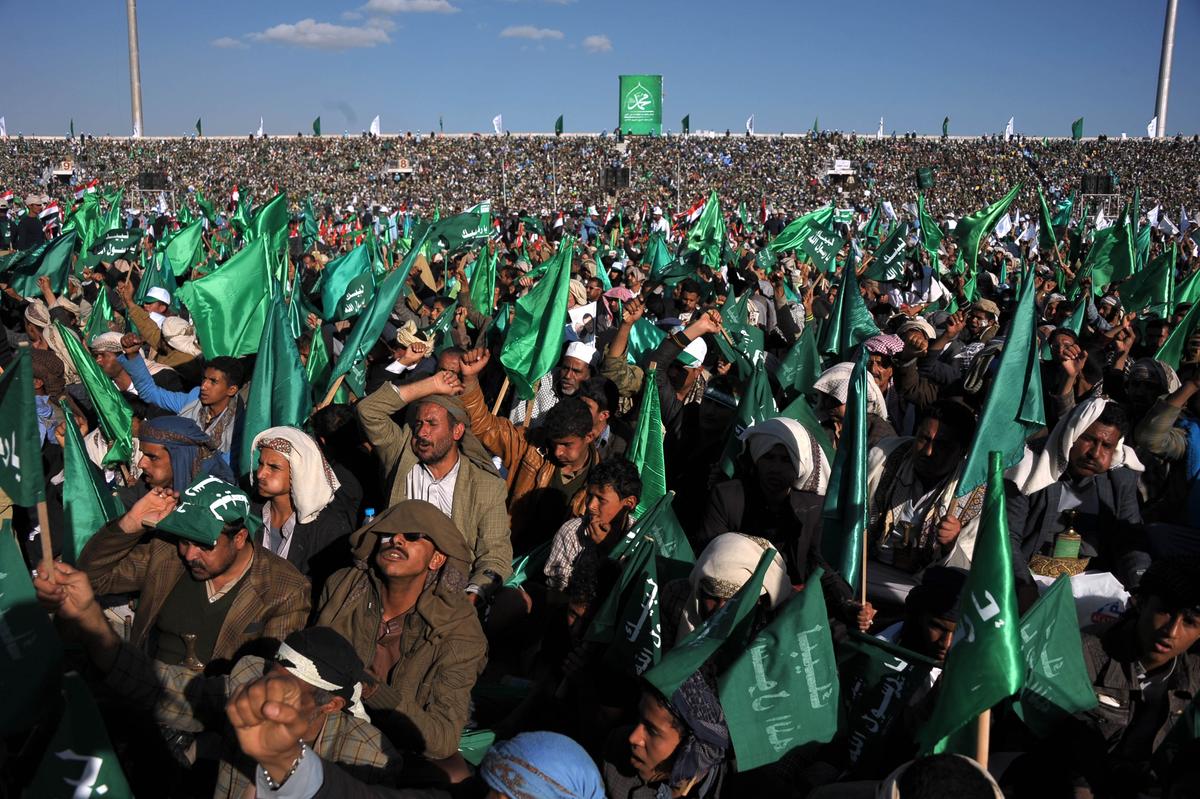The anniversary of the Prophet’s birthday has become of central importance in Houthi discourse and practice in the past years, with militia leaders organizing numerous events in commemoration. This event, which some describe as the most important on the calendar for the Houthis has acquired both religious and political significance. The Houthi leader Abdul Malik Al Houthi on October 7 ,2021, declared in a speech commemorating this occasion, that the Yemeni people understand “the importance of these occasions for mobilization, work, awareness, and education.”
To confirm the mobilizing nature of the celebration, the days following this speech witnessed numerous events, with reports indicating that the Houthi group planned to hold as many as 1,500 celebrations in various government facilities, schools, universities, governorates, directorates, and neighborhoods under Houthi rule. The Houthis use of the Prophet’s birthday to advance political objectives is driven by a number of motives, including:
- Emphasizing religious roots. Most Houthis leaders belong to the Zaydi sect and are descendent of Hashemite families. They view the anniversary of the Prophet’s birthday as an opportunity to emphasize their lineage connection to the Prophet, and to promote their image as defenders of Islam against Western abuses.
- Imposing Houthi discourse. The Houthis exploits this religious celebration to impose their own sectarian discourse and their dominance. For example, a young Yemeni man, Abdul Bari Al-Karmadi, was reportedly shot by militia members in front of his house in the Shumaila neighborhood, south of Sanaa for refusing to put up pictures of Houthis leaders along with traditional decorations for the Prophet’s birthday. These decorations were mandated by the Houthis, and all citizens, homeowners, and shop owners in areas under their control were required to obey.
In the same vein, the Houthis have imposed changes to religious education for students in primary schools, changes, one to six, imposing their own interpretations.
- Demonstrating the ability to mobilize. The Houthis use the huge gatherings and multiple events held to celebrate this religious occasion to demonstrate their popular support, and to send a message to their opponents that they have vast human resources to carry on the fight. It must be noted however, that reports indicate not all who attend these events are willing participants, and many are students and workers in government agencies required or pressured to attend.
The Houthis also rely on religious organizations they have established, such as the Association of Religious Scholars, to rally people to attend. The organization called on Yemeni people “to come out in great numbers to commemorate the birth of the Messenger of God, a day that deserves thanks and glorification.” - Financial gain. The militia uses the celebration to raise funds, through forced contributions from Yemeni citizens. The Houthis endorsed a proposal by their leader Mohammed Ali Al Houthi, to deduct a sum from the salaries of employees on the occasion of the Prophet’s birthday. This proposal was put forth during a meeting on October 2 in Sanaa, chaired by Mohammed Ali Al-Houthi. The meeting was attended by a number of Houthi leaders and officials loyal to the group to discuss what they called “the comprehensive plan for the Yemeni people’s celebrations of the Prophet’s birthday.” The Houthi-controlled Saba agency stated that the money would be used to build a hospital or medical city in the name of the Prophet.
There were other efforts to raise funds as well, with reports the Houthis pressured citizens to make cash donations, sometimes by force. In the governorate of Ibb, Houthi authorities imposed financial levies on the private sector, merchants, dignitaries, as well as citizens and students from some schools. Local residents reported that messages arrived through special envelops were delivered to the homes of citizens in the Al-Zahhar and Al-Mushnah districts in the city of Ibb, in which they were required to place financial contributions to support celebration of the Prophet’s birthday.
Houthi officials also forced residents in neighborhoods in Sanaa to prepare meals in their homes and bring them to mosques and halls designated as event venues. The owners of 17 famous restaurants in Sanaa were also forced to provide meals. The owners of event halls were forced to make them available free of charge , from 9am to 1pm, and from 8pm to 11pm.
In sum, the Houthis exploit the celebrations of the Prophet’s birthday to enhance their political, economic, and even military strength. Their leader, Abdul Malik Al Houthi, used the occasion to reiterate the importance of supporting the “fight”, declaring that “The values of this occasion can be seen in everyday life, as the path of the Messenger of God (may God’s prayers and peace be upon him and his family) is one of jihad.”
The funds raised are also used to support military operations. For example, on October 17, during an event commemorating the Prophet’s birthday in the governorate of Sanaa, the Houthi- affiliated governor, along with governorate officials sent off a convoy worth 200 million riyals in support of military operations. The convoy included cash contributions of 70 million riyals, various foodstuffs worth 30 million riyals, in addition to a medical convoy worth 100 million riyals, raised from governorate employees.


